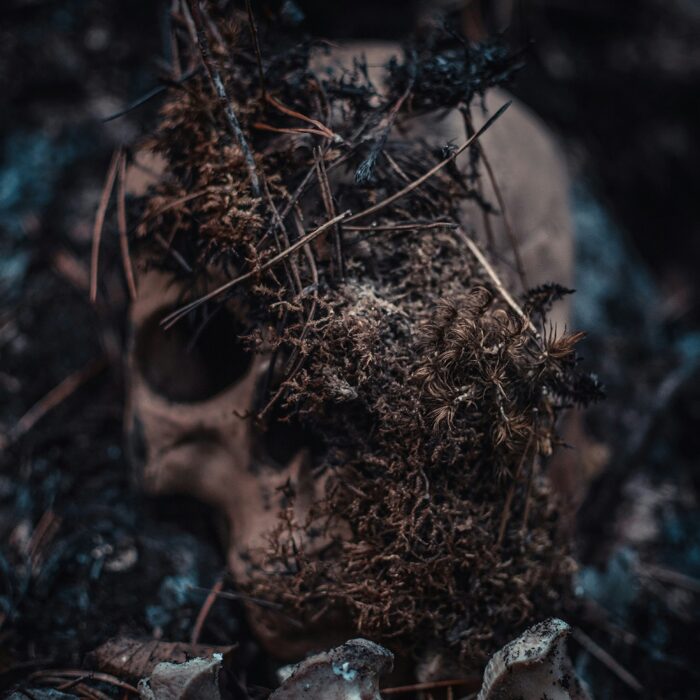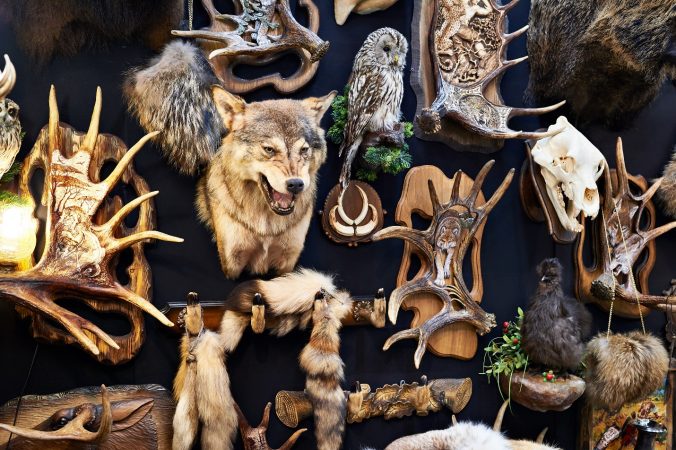You have no items in your cart. Want to get some nice things?
Go shopping
My recorded lecture hums in my headphones with a narcoleptic charisma as my head bounces on the train window. My professor is saying that antechinus males are mammals with particularly difficult lives. Like most animals, their preoccupation is first to survive and second to mate. He emphasizes that they are neglected by their mothers from birth, and when they are finally able to reproduce the act is singular and arduous: they mate for 14 hours straight, until they have sufficiently stressed their immune system to the point of blood clots, parasitic infection, and ultimately death. I try my best to commit the information to memory as I lose my battle with consciousness, and my eyes fall shut.
When my eyes open again, the rolling greenbelts that envelope Ottawa’s core are coming to a blurred halt as we pull into the station. The falling sun is casting a golden glow on the frost burnt corn emerging from winter’s furnace. March is always a weird time in Ottawa, with days fluctuating between ice and sun. That’s why the funeral can happen – the ground isn’t frozen anymore. When I was a kid, my grandfather’s funeral had to be postponed by four months because they couldn’t crack the ground. It felt like he wasn’t gone, and then the sun came out and he was.
The inside of the station looks the exact same as it did when I left for college four years ago, fitted with an immutable Pepsi-branded vending machine and a bathroom that’s always closed. Outside, dad’s rust-stained Honda Civic is sitting alone, and I can hear the hum of public radio radiating from his dash as soon as I step into the brisk spring air. His trunk is filled with snowshoes and ice skates so I relegate my bag to my lap, and he hushes me to silence when I tumble into the empty seat next to his. Dad’s playing some call-in special about Alzheimer’s that’s called The Beginning of Forgetting. Most of it is focused on the mechanics of dementia, the nature of aging, and what fruits and juices might keep you from losing your marbles too soon. Some of the callers are a bit more existential, though. One goes as far as to suggest that perhaps dementia is a subconscious mechanism for people to forget a life lived that wasn’t truly theirs. Dad nods indifferently throughout, and we sit in silence for 15 minutes until the special ends and he finally welcomes me home.
It seems like a cursory title, home. I’ve lived in over 14 places over the past four years and none of them truly felt like home, least of all my parents’ place. Dad tries his best to make conversation; questions about my studies to double-check my program name, whether I watched the Super Bowl the month before and who I cheered for, what I’m planning to do when I graduate in two months, et cetera. I tell him that I don’t know, that I’m figuring it out. Really, I’m entirely panicked, but I’m putting the panic on hold, quietly tucking it into the recesses of my consciousness until it grows so large that it bursts like an aneurysm. For now, my answer is enough to satisfy his lukewarm interest. All he cares is that I graduate.
We return to the original point of conversation, the Super Bowl, because he can’t believe I cheered against Tom Brady. Dad’s obsessed with football for no reason. Never played. Never had a remote interest until four years ago. Since then, he’s been a fanatic. I try my best to buoy up the conversation with my layman’s knowledge of the sport – what’s happening and who’s who – but it’s really just enough to keep him talking to himself. I don’t know anything about football. I don’t even like sports.
Dad pulls into the driveway, and I notice that the garage door still has the same glaring scar I’d marked it with almost six years ago when I was learning how to drive. My old hockey net is still on the side of the house too, but I can’t muster up the strength to ask dad why he doesn’t just throw it away. We walk to the house a careful distance apart, and as we step inside he tells me that he’s going to rewatch the Super Bowl LI matchup between the Patriots and the Falcons as he beelines down to the basement. I say okay and diverge into the living area where worn magazines clutter the family coffee table. Nobody throws much away around here.
In the kitchen, mom stands over the island counter, carefully measuring some powdered substance from a big container into a bottle. She’s too focused on the measurement precision to even notice me at first but, when I ask her what it is, her head darts up and she smiles as she explains that it’s a new vegan weight loss formula that eats away at lipose tissue while synthesizing protein so that you lose fat and gain muscle at the same time. She’s always trying new weight loss formulas, even though she’s fit for a woman of her age and has more or less maintained the same figure since she had me.
Once mom configures her concoction, she asks me how the train was, how I’ve been feeling since I learned that Moe passed, and whether I want one of her weight loss smoothies. I say fine, okay, and sure, I guess. She asks me if they’ve learned anything more about what happened since I first found out. I tell her no, it’s only been a day after all, and then she asks where he was even hit, so I tell her near the intersection in front of my old high school. I have to repeat the last bit three times because the blender is making a buzzing noise that rips my voice to shreds. Between gulps of her smoothie, she says it’s such a tragedy, Moe was so ambitious. Mom’s right. Nial Rogers hopped into his dad’s Camry and drove Moe straight to heaven; he drove his own life away, too. We all knew Nial – curly blonde hair, honours student, promising future, et cetera. He wanted to be a mammologist for a bit, until he realized he could flip a dime bag for two and a half times its street value by selling it to AP kids. How many mammologists do you know in this economy anyway? Turns out Moe had taken a bunch of Xanax before he was hit, too. Apparently enough to bully his nervous system into default functioning. I assume Nial and Moe were going to meet. Who knows. Moe’s family is Muslim, so he has to be buried right away. That’s why I had to come back so quickly – they need to bury the body before it goes cold, before feelings from our time together can crystallize.
Dad’s screams at the football game on the TV command the room back into focus. Embarrassed, mom tries to muffle his chorus by asking me where the funeral is going to be, so I tell her the name of the mosque in the suburb near ours, and she says that she likes shopping near there with a big limousine smile that bridges from ear to ear. When I tell her where the cemetery is, her face lights up even more. Apparently it’s right across from the new Costco that she’s started to frequent, so she offers to drop me off for the funeral while she goes shopping tomorrow. It makes sense.
Upstairs, my old room is more filled than it had been when I left four years ago. They’ve packed it with shit that isn’t mine. Mom’s clothes, dad’s clothes, my baby clothes, et cetera. Old furniture too. Stuff from family, I guess. Old leather reading chairs that have rips, plush feathers that off-gas old cigarette smoke – the room musty with someone else’s nostalgia. I hop-scotch through the junk and get naked and into bed. For the first time today I feel some sense of comfort in the warm darkness of the room. It feels like a sensory deprivation tank, though just for a moment until dad’s screams at the TV screen waft up to the top floor. It’s the same song as always, no matter what it’s about. Here’s something that he can’t do anything about – something that’s already happened.
***
In the morning dad’s car is gone and I hear the whirring of mom’s treadmill downstairs. There’s already a new pile of magazines on the coffee table and coffee beans strewn across the kitchen counter, and I’m just barely able to liberate a half-bagel from the countertop rubble to put into the toaster. I try to find comfort in the quiet until the toaster pops and my mom rushes up the stairs with sweat misting at her mouth and her drugstore dye-job beading at her temples. Your dad’s over at Joe’s talking shop, she says, household dialect meaning dad’s over at his friend’s house, sitting in his heated garage, drinking non-alcoholic beer and firing wiffle balls into a golf simulator. Dad likes to get out of the house.
Mom makes a smoothie, this time beet-coloured, and then chews on a few nuts. She says that she’s easing into intermittent fasting with the smoothie and the nuts, but that this doesn’t count as a meal because she doesn’t actually swallow the nuts. Just chews and tastes them a bit before spitting them out. I tell her I need to be at the ceremony in an hour and she nods, exasperated, throwing things across the counter with no apparent intent before running up the stairs to get ready. I do the same, but the glacial water flowing from the showerhead only dissociates me further from the day. Everything around me seems like I’m watching it through a television screen: crisp and real but with no room for reciprocity. I slip into a dark sweater and pants and then call my friend Ben to see what he’s wearing because neither of us have been to a Muslim funeral, much less a friend’s funeral, much less a funeral at all, or at least one we could really understand. I remember touching my grandfather’s waxed face during his visitation, and how I tickled his nose hairs, expecting him to jump up and grab me. He just lay there, dead. I remember wondering where his mind was, and if it might be somewhere else watching as I prodded at a face that was no longer his.
Moe and I had a conversation about that once. The idea of a spirit or a creator. He tried to convince me there was one of some kind. He talked about the wonderment in everything, like how pi is expressed in nature or how efficiently plant cells create oxygen. One time in physics class he said this thing about how the laws of physics are a wonderful gift that we don’t really understand or deserve. In my naïveté I thought he was joking. Now I hope he wasn’t, even though all I can seem to think about is the antechinus fucking and dying, fucking and dying, fucking and dying.
Mom takes the highway westward as the pale sun buoys in the rearview mirror of her old SUV. Ben’s head is partially obscuring it in the back seat, and his face looks vacant with baggy eyes dulled by tears. Looking into the mirror I try not to stare, focusing instead on counting trivial things like the number of highway signs we pass per minute or the number of roadside tributes there are in honour of highway crash victims. It helps anchor things.
We pass by three greenbelts by the time we get to the mosque, which is neatly tucked behind an old Catholic school and looks like a couple of conjoined portable classrooms. There’s a jumble of cars out front and mom doesn’t have the patience to park, so she reduces our departure to a stop-and-roll, and I immediately step into a puddle of slush. Mom screeches out of the window that she loves me and that she’ll text me when she’s done shopping, and I say okay, hurrying her with the pace of my voice because everyone else in the parking lot is staring at us now.
Inside, an old man with a wispy grey beard and a bright Taqiyah urges us to take off our shoes. I comply, revealing a dip-dyed stain encompassing my heel where the slush is still melting, as well as a gaping hole near my pinky toe. The man asks us if we are here for Moe’s funeral, and we say yes under our breaths. He directs us to a small classroom filled with people divided by sex, many of whom I recognize as they join the amorphous blur of my periphery. Another man with a darker Taqiyah walks into the room and clears his throat before explaining that there will be a brief viewing of the body before a community prayer. He assures us that more people are in attendance for the prayer than usual because of Moe’s young age, yet there’s no mention of his accomplishments or aspirations. A short song begins to play and a group of young-ish boys wheel in a rectangular wooden crate that must be the home for Moe’s body. It looks like a shipping container. The man in the darker Taqiyah pushes the crate ajar and peers down briefly, clenches his jaw, and then seems to look directly at me as he urges everyone who feels comfortable to say their goodbyes. I look at Ben who nods tightly with his lip curled, and we get up and approach the box together.
Inside the crate Moe’s eyes are firmly shut and missing the glasses he used to always wear, and a pristine white cloth sits over top of his mutilated body. His skull is slightly sunken, too, like someone had held it too hard. He looks bad, but not awful – just like he’s sleeping deeply, waiting to be woken up. Like after the first high school parties we’d gone to, where we’d fist bottles of cheap liquor and then sleep over at each other’s houses and make excuses for our hangover symptoms and the mess we’d made of whoever’s room we were staying in. We hadn’t done anything like that in like five years, maybe longer.
Do you think that time makes it harder to feel, or harder to pretend you’re not?
There’s a second where it feels like if I give Moe a poke he might blink and wake up, or at least grab my finger and give me shit, but before I can blink the feeling is gone. Maybe he’s somewhere around, looking at me, laughing at how stupid I look getting all flustered about something as inconsequential as a big mass of cells. It’s hard not to wonder when I will lie like he is – like this. What will be the cause? Blood clots or parasitic infection or liver failure? From fucking, hopefully. A gentle push to my lower spine arrests my imagination, and I look back to the man in the darker Taqiyah who is urging me forward. I look down one last time and say a final goodnight to my friend, walking ahead without sight, feeling like a pervert who’s seen something he shouldn’t have.
***
The cemetery is cold and damp and discoloured and Moe’s grave is unceremonious, marked only by a large crowd surrounding it. There is no headstone, just a big crane hanging over a hasty-looking hole, like one a child might dig into a sandbox. Across the road the mega-Costco dominates the skyline, polluting the serenity of the cemetery with the noise of weekend shoppers. A new age pantheon, I think. I wonder what had existed on the ground where the Costco now sits; what kinds of dynamic ecosystems this area had birthed and then aborted with human activity. I wonder, too, what the area will look like 100, or 1,000, or 1,000,000 years from now. Will the Costco look the same after I’m laid out like Moe? Probably.
The Imam emerges from the small crowd and says some words. That despite the loss, there is no loss, as Moe’s family is comforted in their faith and in knowing he’s reached paradise so quickly. His words fall onto Moe’s box in synchronicity with the frosted soil from his hand, and others soon follow suit, lining up at the mound that sits impolitely by the hole’s edge. Ben and I drift over and pick up a handful of cold soil which is hard and rough and entirely inhospitable. I try to warm mine by blowing some of my own life into it, hoping it’ll feel a bit more like spring or summer. By the time I get to the front, though, it doesn’t. It just feels like March in Ottawa. I throw my handful onto Moe’s crate, and try to say farewell, or maybe see you later. In the end, I can’t decide which, because in the quietude of the funeral procession my stream of thought keeps getting choked out by an exuberant shopper yelling to his spouse that Costco is all out of chocolate croissants.
Cars stream out of the cemetery parking lot until I’m sitting alone with Ben, puffing on a Juul and considering the words of the Imam as carefully as I can. Is that all he could muster to say about Moe? Do you think that he’d ever even known him? The remainder of the service feels blurred, full of impressionistic images and muffled speech. I guess that’s how most memories are. I ask Ben what he thought of it all and he says it was nice but kind of unsettling. I ask him what he thought of what the Imam said, and if he believes Moe is in a better place, or that this is part of some kind of plan, or whatever. He takes a longer, mouthy hit from the Juul, goes to speak, and then takes another one. I pat him on the back and say it’s okay, but he says no it isn’t. I can see a tear forming at the corner of his eye, and then feel my own eyes mirroring his as I try to console him, but ultimately find I have no voice. Ben says that he doesn’t know if he believes in any of that, or that he doesn’t think he does, and that he hopes this isn’t all part of some greater plan because he doesn’t want the universe to work that way. Neither do I. My professor’s words from the lecture on the train proliferate in my skull.
For a while we sit in a comforting quiet, until Ben looks at me and tells me not to worry, that we’re all in this together, and I say thank you as I watch his frozen breath fall onto the hard soil beneath us. Mom texts to say she’s en route to pick us up, but I’m not sure when she’ll show. Apparently Costco was very busy, and she’s filled her car with groceries. She says she needs my help putting them away. I’m not sure where they’ll all go.

About Conor Truax
Conor Truax has work forthcoming in Misery Tourism and Bull: Men’s Fiction, and recent work in Expat Press and Fugitives and Futurists, among others. He was recognized by the Adroit Prize for his piece Reasonably Alright in 2021.




